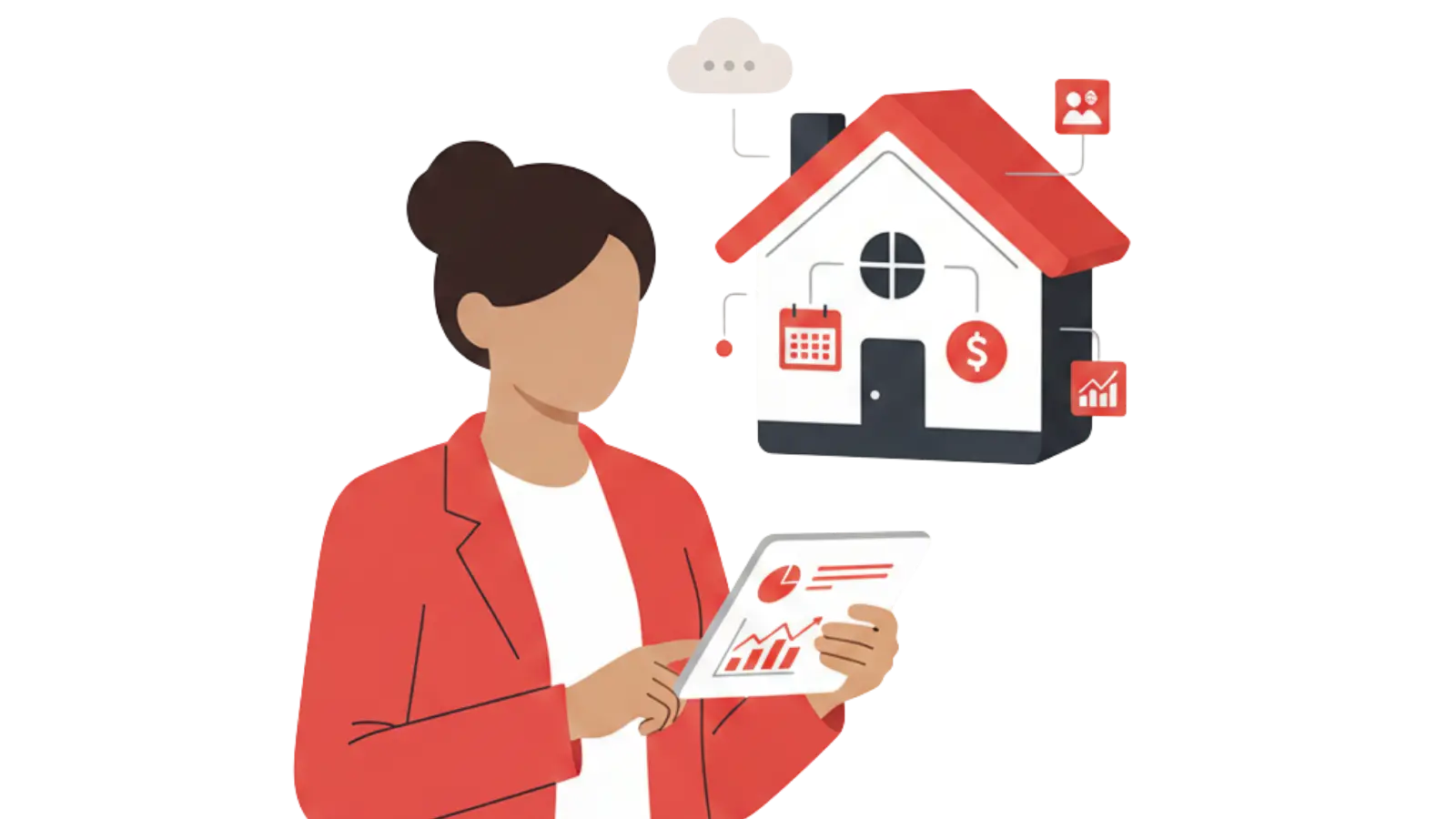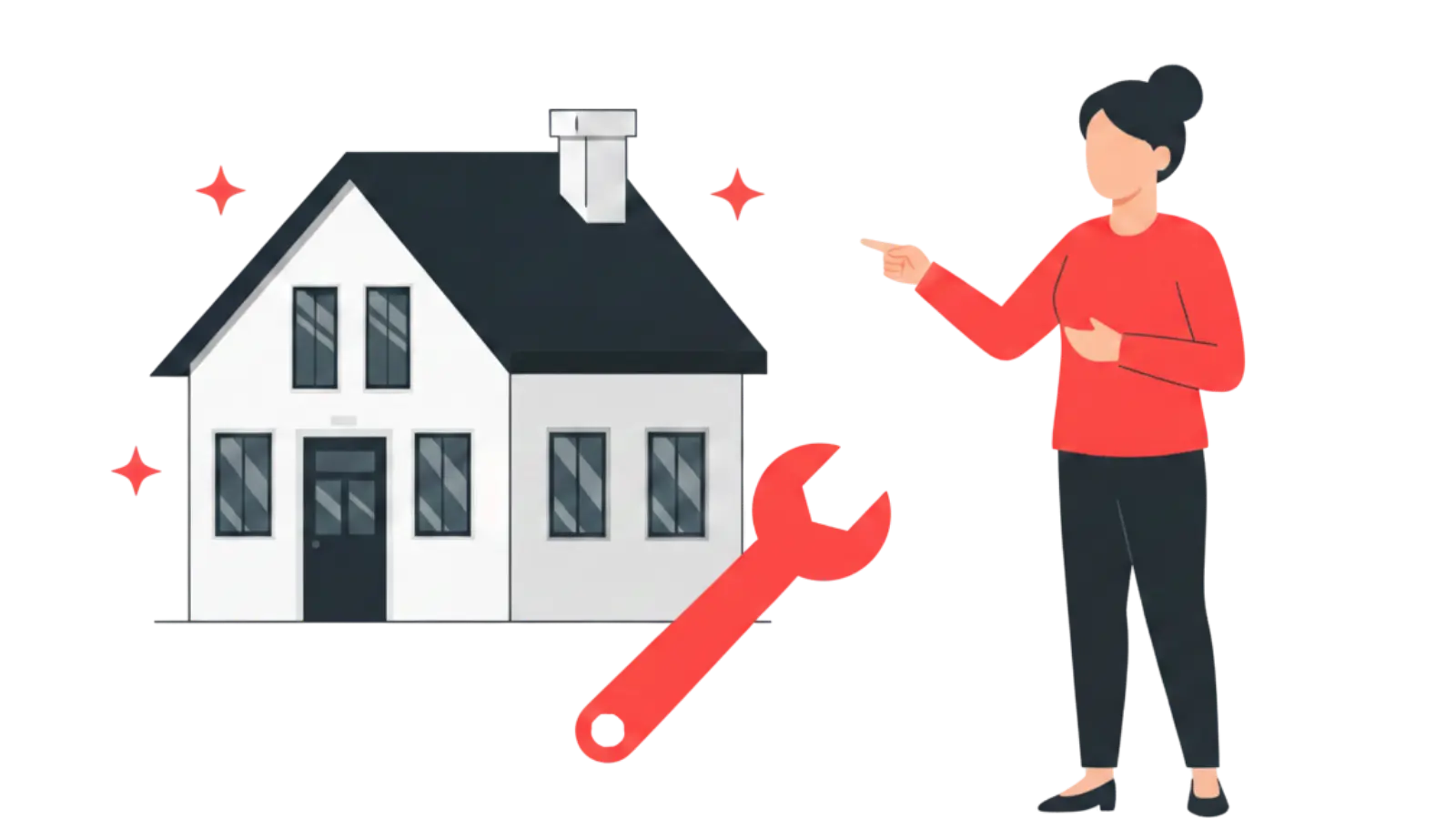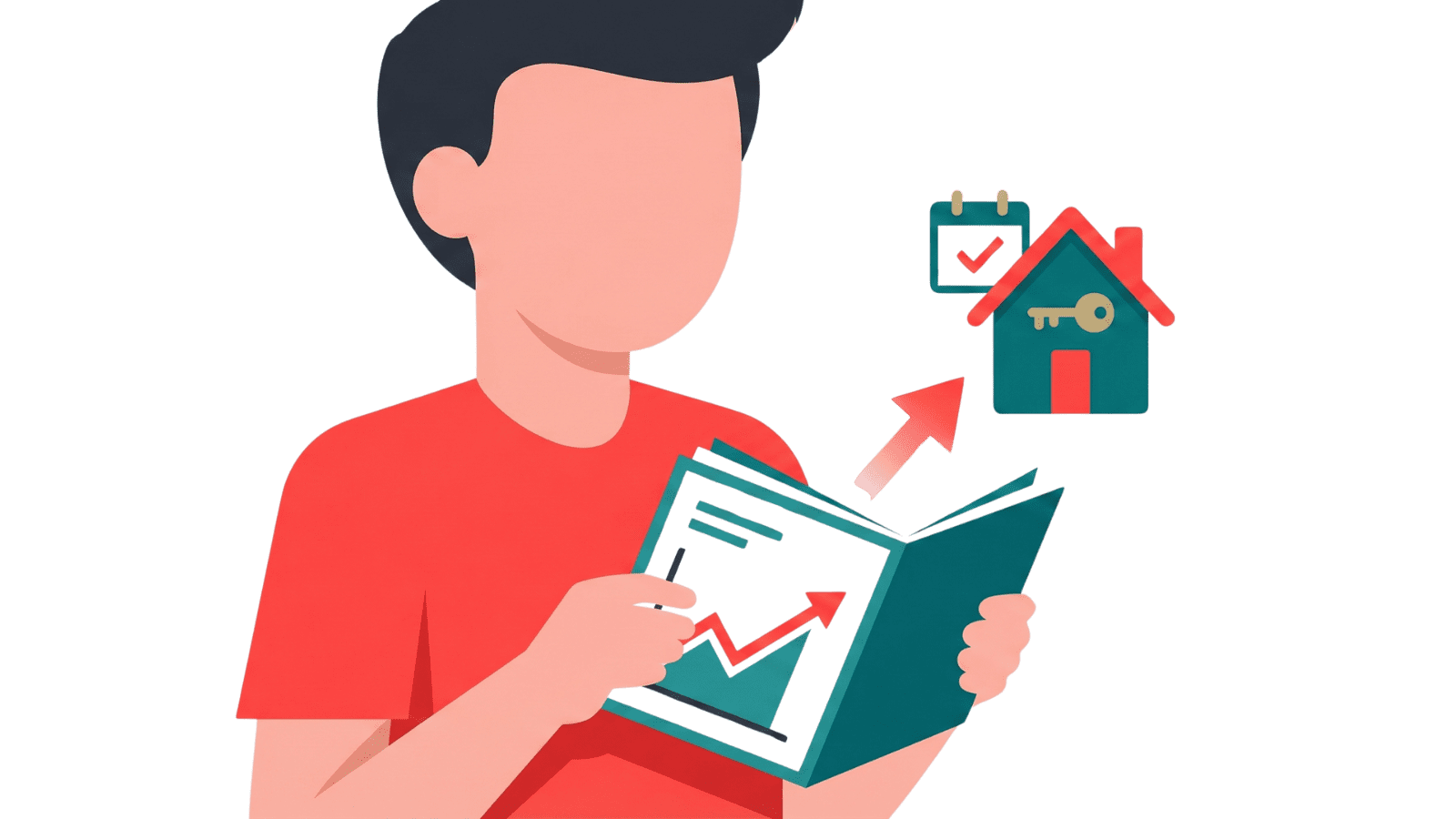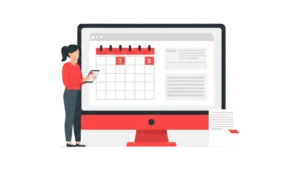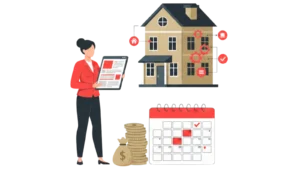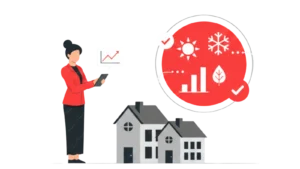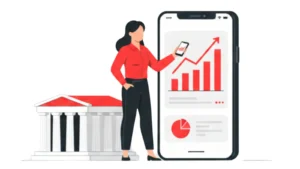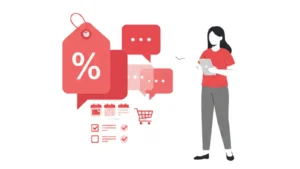Table of Contents
Airbnb Safety Issues and how to prevent them?
Airbnb Safety Policies
Airbnb Safety Policies for Solo travelers
Many Airbnb safety issues run through your mind when you are staying at a house belonging to someone else in a different city. The same is the case for homeowner who opens their doors to someone who booked their accommodation online. As a home-sharing platform, millions trust, but there are still many things that a guest and host need to do to make the whole experience safer and more enjoyable.
The hosts are the primary ones responsible for ensuring their property’s and guests’ safety. However, there are still a lot of necessary safety measures that they should take and are unaware of to ensure that the guests and their family safety on Airbnb is maintained.
A survey published in the journal Injury Prevention elucidates that several Airbnb properties do not contain safety equipment. The safety equipment includes smoke detectors, carbon monoxide (CO) detectors, fire extinguishers, and first aid kits. Not having this essential safety equipment can potentially put guests at risk in an emergency.
Airbnb has seen a rapid growth over the past few years and realizes the importance of trust in making the platform a success. As a result, Airbnb has released new safety policies that will create a safer environment for both guests and the host. The new Airbnb Safety Policies cover:
Airbnb safety issues and how to prevent them?
1. Lack of smoke alarm leading to fire-related injuries
Since some Airbnb are not licensed, the local Building & Fire Prevention department does not regulate them to ensure that the residential property complies with the fire and safety codes for transient use. As a result, if a fire breaks out, guests might be on their own. There have been many tragic hotel fires with massive loss of life. Government has since put these safety codes in place to save lives.
How to prevent this?
Smoke and carbon monoxide (CO) alarms are critical to saving lives. Therefore, it is highly advisable to install smoke and carbon monoxide alarms in spaces that use fuel-burning appliances, test them regularly, and ensure their maintenance is up to date. You should also invest in fire-retardant furniture to avoid spreading any fire in case of mishaps.
Airbnb has mandated the installation of smoke detectors and carbon monoxide detectors in their rentals. In addition, Airbnb provides self-contained, battery-powered, combination smoke and carbon monoxide alarms to eligible hosts at no cost. You can check your local laws to better understand the requirements and the right places where you should put a smoke alarm on your property.
2. Infestations can cause diseases.
Some short-term rentals do not follow a hotel or motel’s health and human safety standards, like controlling the spread of infectious diseases and maintaining safety and sanitary conditions. This is a huge Airbnb safety concern that can have long term repercussions on the health of your guests.
How to prevent this?
Make sure you check your rental for bug infestation regularly. Also, do rounds of your house to ensure that there are no mold or other disease-causing infestations in the home, along with checking your amenities. If you encounter such infestations, immediately call a professional infestation control service to control the situation.
Check your kitchen for any roaches or unsafe cooking environment and fix any issues.
Invest in professional Airbnb cleaning services to ensure your rental is clean and safe for use. You can recover professional service costs by charging your guests an extra Airbnb cleaning fee.
3. Natural disasters can put everyone’s well-being at risk.
Imagine a situation where the local emergency services suddenly issue a tornado warning in your area. Amidst this, your visitors have arrived at your rental. Unfortunately, the storm has hit your house and ripped apart the roof of your property. Fortunately, your visitors and their things are safe, but the disaster destroys your property.
How to prevent this?
If you have received the warning of a storm hitting your region, immediately cancel the reservation with your guests and tell them about the storm. Explaining the situation to them may prevent your guests from giving you a negative review and warn them against traveling to your area during that time.
If you could not cancel the reservation in time and your guests were already at the venue, ensure they were safe. You should immediately notify Airbnb and your insurance carrier if the storm or any other natural disaster harmed your guests.
4. Robberies
Your visitors will spend the night at your home if all goes according to plan. They were probably a delight during their stay and didn’t ping you even once for anything. However, once they left, you realize they took much more than they were allowed to take. As a result, your valuable artwork and crystal bowls have gone missing.
You filed complaints with Airbnb, but they reaped no results as the customer service could not reach the guests, and you have not received any reimbursement for your stolen valuables.
How to prevent this?
Since renting your place to strangers, avoid leaving anything valuable at the property. If you want to decorate your property luxuriously, you should get insurance coverage for anything of value.
You should also notify the authorities immediately if you notice something missing so that they can initiate their investigation at the earliest.
As a host, you can ensure that you check your guests’ reviews and personal information before accepting their bookings. In addition, you can check their profiles on social media platforms to confirm their identity. Additionally, Airbnb also provides an Airbnb Safety feature that does the background check for you. Following this practice will ensure that you are not opening your house to suspicious individuals making your other guests feel safer.
Also, invest in safety alarm systems, outdoor cameras, and security alarms to protect your property and guests from robberies and house breaks.
5. Inebriated visitors causing a raucous
You just greeted your visitors. Unfortunately, they’re being abrasive because they’ve been drinking too much (or worse). Things are quickly becoming an Airbnb nightmare. You don’t want them on your land since they’re causing trouble.
How to prevent this?
Submit a cancellation request with Airbnb stating the reason. You can then take steps to remove the intoxicated individual from your property or send them to a hospital. Call the police if you suspect drugs are involved or sense a danger to your well-being.
Finally, make sure you mention your tolerance for the use of alcohol in your house rules clearly in your ad.
6. Last-minute cancellations lead to no accommodation for guests.
How to prevent this?
Ensure you don’t cancel on your guests until it is inevitable, like in case of property damage or natural disaster. If you need to cancel a reservation, clearly state the reason and, if possible, suggest to them some properties in the vicinity that they can go to for their stay.
7. Parties that wreck the house
Suppose your visitors inquire about renting your house for the weekend with the understanding that they want to sleep and read. However, a raucous party at your home begins yet another Airbnb horror tale.
Your cleaning crew arrives to an overturned house the following morning indicating a party that the guest didn’t inform you about.
How to prevent this?
On the weekends, be on the lookout for visitors interested in renting your property for a single night. Use minimum length of stay restrictions settings to avoid guests booking your property for one night on the weekends. You can also check your guests’ ratings to see if any other hosts have had issues in the past.
If you’ve only committed to a particular number of people staying at a time, don’t let anybody else in. This will allow you to contact the police and shut down the party as soon as it begins/ You can also install video monitoring on your premises to know in case more than allowed guests arrive at your listing.

Airbnb Safety Policies
Airbnb has seen rapid growth over the past few years and realizes the importance of trust in making the platform a success. As a result, Airbnb has released new safety policies that will create a safer environment for both guests and the host. The new Airbnb Safety Policies cover:
1. Risk scoring
Before a reservation is confirmed, it is scored for risk by Airbnb. The organization utilizes predictive analytics and machine learning to immediately analyze hundreds of signals that assist them in flagging and investigating suspicious activities before they even occur.
2. Watchlist and background checks
While no screening system is perfect, globally, Airbnb checks hosts and guests against regulatory, terrorist, and sanction watchlists. Airbnb also conducts background checks for hosts and guests residing in the United States.
3. Preparedness
The platform runs safety workshops with hosts and leading local experts and encourages hosts to provide guests with important local information. They also give any host who wants a free smoke and carbon monoxide detector for their home.
4. Secure payments
Airbnb’s secure platform ensures the safe transfer of money. That is why it mandates the guests to always pay through Airbnb and never transfer money or pay someone directly.
5. Account protection
Airbnb safeguards your account by taking several measures. These include mandating multi-factor authentication when a user logs in from a new phone or computer. They will send you account alerts in case of any changes.
6. Scam prevention
Always pay and communicate directly through the Airbnb website or app. You’re protected by their multi-layer defense strategy as long as you stay on Airbnb throughout the entire process, from communication to booking and payment.
Airbnb Safety Policies for Solo travelers
As the “work from anywhere” phenomenon has become a trend among people who can travel while working, the Airbnb platform has become increasingly sensitive to the needs of solo travelers using Airbnb. According to the data collected by Airbnb, 26 percent of the total nights booked in 2021 were by solo travelers and upwards of 50 percent of all nights booked for long term stays during the first quarter of 2022 were by solo travelers.
The Airbnb team realized the importance of protecting these solo travelers and developed a new product to promote a safe and secure experience for these travelers.
Airbnb’s new Solo Traveler in-app experience is specifically designed to support better, safe solo traveling on the platform. When a solo guest books a private or shared room reservation, Airbnb activates a specialized in-app experience, starting with supplying the traveler with expert tips they may want to try to help them stay safe when traveling alone.
The critical component of this new feature is the ability for the solo traveler to easily share, with one touch, their reservation itinerary with the important and trusted people in their lives. This will safeguard them in case of emergencies and make sure that their location is known to their families at all times. The itinerary includes the listing address, reservation code, and check-in and out dates.
After the reservation is confirmed by the host, the traveler will view automated prompts by Airbnb suggesting queries that the guest should ask the host about the property and its surrounding neighborhood. These questions are compiled after researching and surveying experienced solo travelers who gave details about the types of local insights that assisted them in staying safe during their travels.
Airbnb has provided millions of people with an additional source of income and a safe abode in a different city. So it is only natural for the platform and these people to worry about their safety when they trust strangers with their well-being and their property’s safety.
The tips mentioned above and policies will help you understand how to prepare yourself, your property, and your guests for any emergency and safeguard yourself and your guests from dangerous situations.

